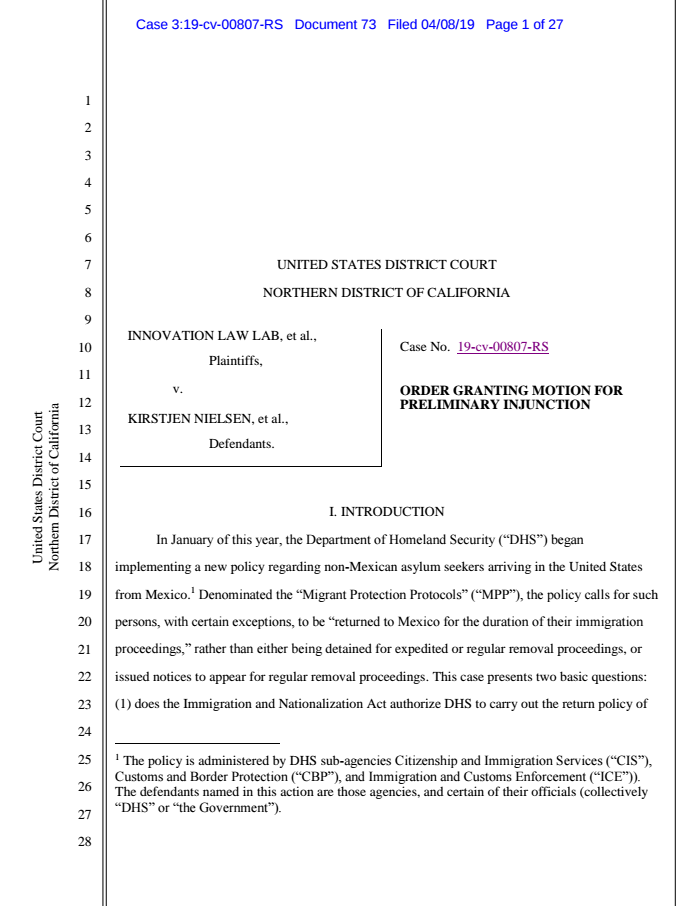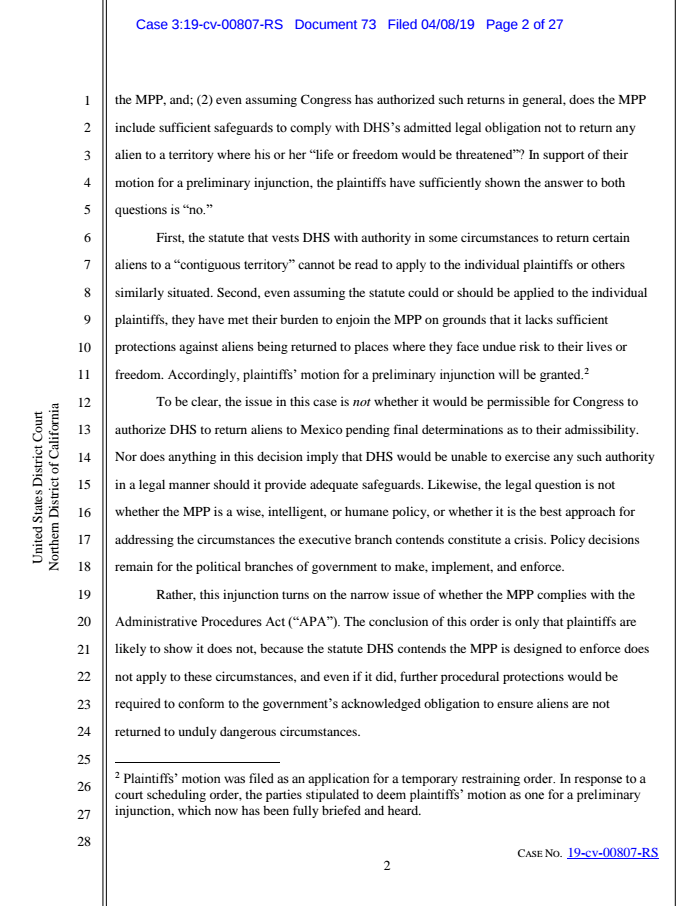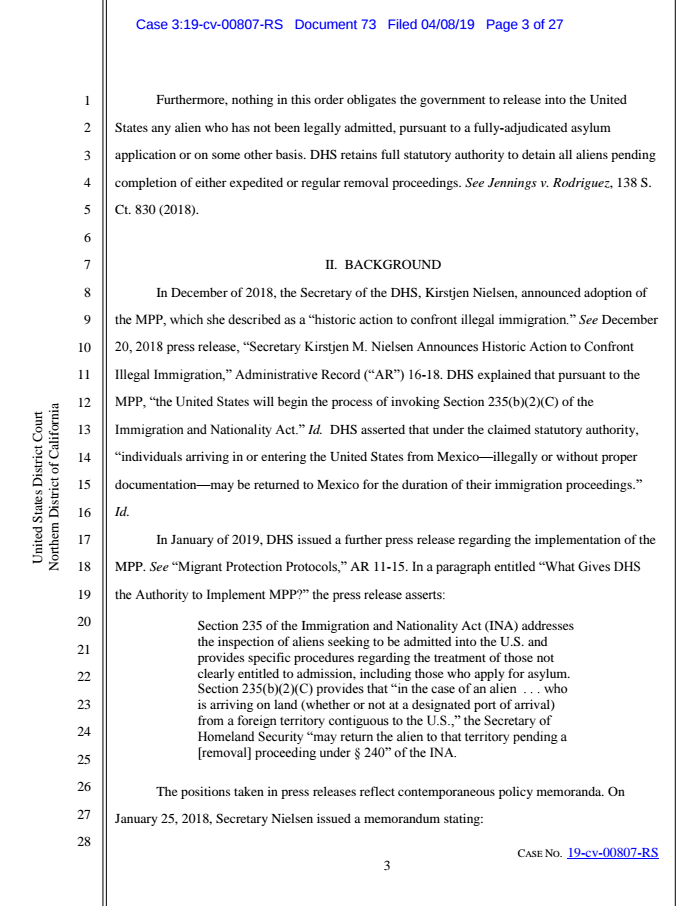
April 9 (UPI) — A federal judge on Monday blocked a Trump administration policy to send some asylum seekers back to Mexico to await the resolution of their immigration processing.
U.S. District Judge Richard Seeborg, of San Francisco, enjoined the Migrant Protection Protocols policy, saying the Department of Homeland Security didn’t have the authority to carry out the policy and that it failed to include sufficient safeguards for asylum seekers.
Seeborg wrote that the order will take effect at 5 p.m. on Friday and that all plaintiffs named in the suit will be permitted to enter the United States within two days after that date.
The Migrant Protection Protocols policy began in January at the port of entry in San Ysidro, Calif., but has been extended to Calexico, Calif., and El Paso, Texas. In his ruling, Seeborg wrote it would have been extended farther along the border if not enjoined.
Under the procedures, immigrants requesting asylum — including those who crossed through the ports legally — were returned to Mexico with the ability to return in a month for an appearance in U.S. immigration court.
Kirstjen Nielsen, who was secretary of the Department of Homeland Security at the time, said the policy was meant to prevent the so-called catch and release tactic in which immigrants who cross the border illegally are arrested and then released pending a future court date.
Prior to resigning on Sunday, Nielsen had requested that the policy be expanded.
In his ruling, Seeborg wrote that the legal question posed by the case was not “whether the MPP is a wise, intelligent, or humane policy, or whether it is the best approach for addressing the circumstances the executive branch contends constitute a crisis.”
He stated instead that the legal ruling found the program likely violates the Immigration and Nationality Act, the Administrative Procedures Act and legal protections ensuring immigrants “are not returned to unduly dangerous circumstances.”
The DHS will still have authority to detain migrants upon returning to the United States and Seeborg’s ruling does not preclude Congress from creating a similar program under federal law.
“To be clear, the issue in this case is not whether it would be permissible for Congress to authorize DHS to return aliens to Mexico pending final determinations as to their admissibility,” Seeborg wrote.








